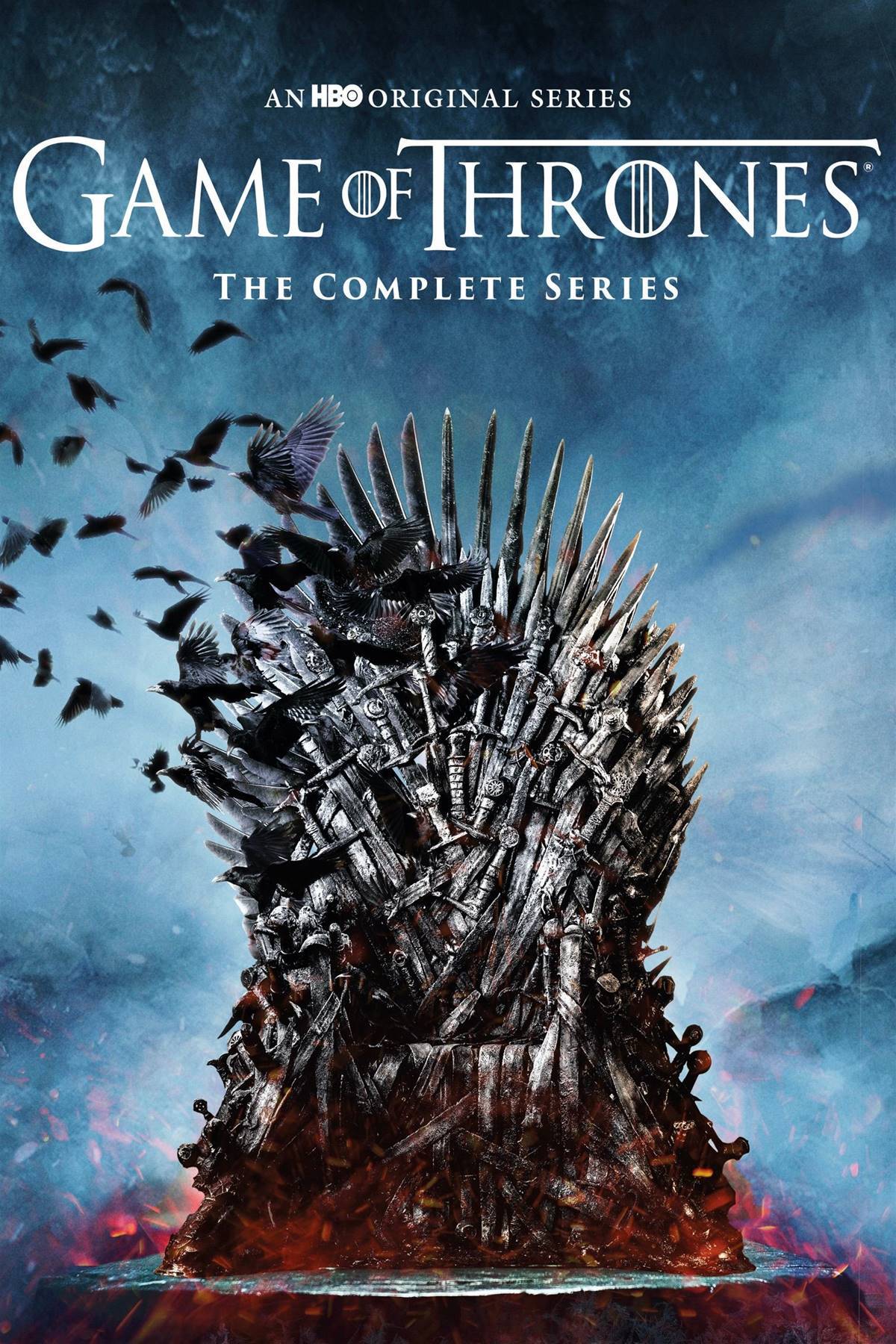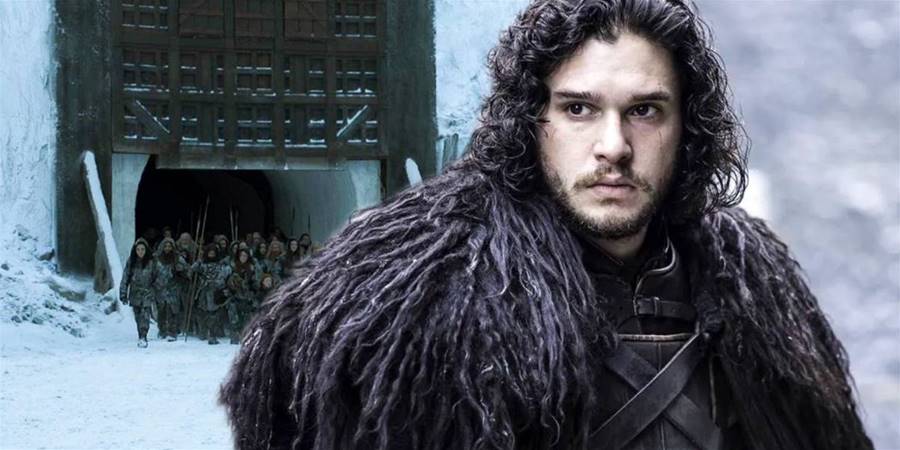

has a lot of controversial aspects to its final season, but what happens to Jon Snow in the end presented some glaring plot holes. For most of the show Jon Snow was a member of the Night’s Watch, tasked with defending the Wall against what lay beyond: the barren North and its Wildlings. After discovering the threat of the White Walkers, led by the Night King, Jon Snow allied himself with the Wildlings and attempted to use his new position of King in the North to unite the Seven Kingdoms against the White Walkers.
He achieved this by swearing fealty to Daenerys, but after Daenerys burned King's Landing, Jon killed her.
His punishment was being sent back to the Night’s Watch but the final shot of Jon Snow in showed him leading a group of Wildlings back beyond the Wall. Jon's ending created some noticeable plot holes as it ignored the redundancy of the Night’s Watch and undermined the political state of Westeros after . While his final destination as a Wildling leader felt like a fitting conclusion, the way the show reached that ending was questionable.
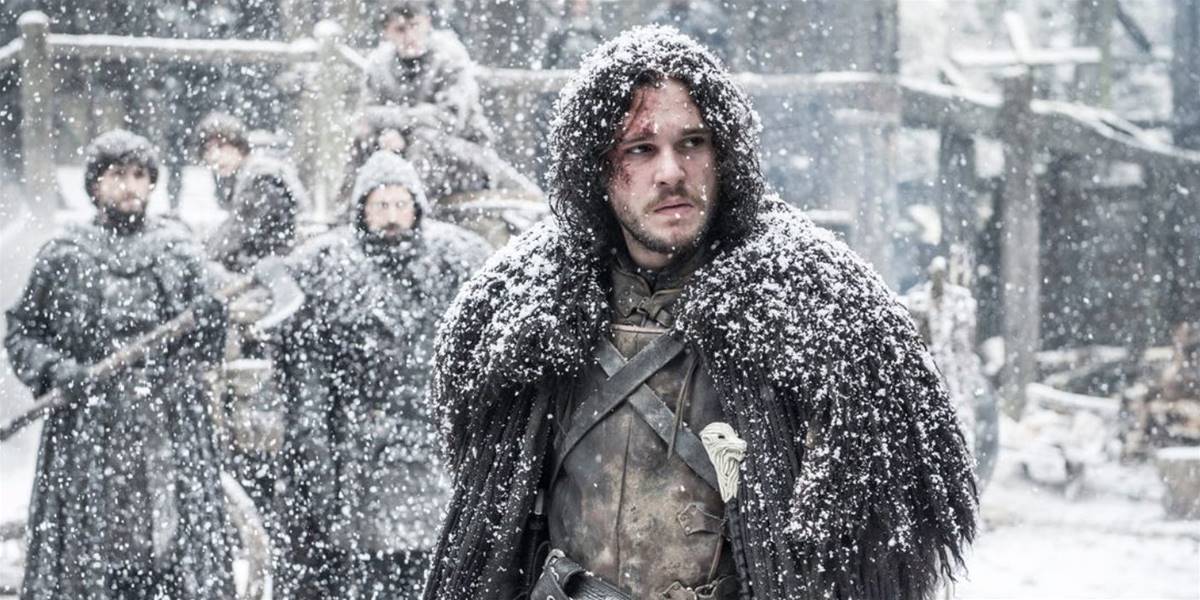
As neared its end, the politics of Westeros grew messier, but Jon's ending only made things worse. After being imprisoned for murdering Daenerys, Jon’s fate was decided by an unlikely candidate: Grey Worm. Tyrion Lannister played a key role in convincing Jon that Daenerys needed to die, yet he was named Hand of the King. It was confusing that one conspirator was rewarded while the other was punished, and no explanation was given as to why Grey Worm played such a key role in the decision. At that point in , Grey Worm was the commander of a dead queen. He wasn't from Westeros, nor was he a nobleman, so a Westerosi king shouldn't have listened to him.
To make matters worse, the king in question was Jon’s own brother, Bran Stark. His sister, Sansa, was also crowned Queen in the North in the finale. As a result, the Starks – Jon’s blood – controlled all the Seven Kingdoms. Grey Worm's sudden influence also undermined the fact that Jon was the rightful heir to the Iron Throne; an ex-slave from Essos should have had no authority to banish him. Given how easily the new folded to foreign pressure, Jon's sentence makes the political dynamics of Westeros after season 8 unclear.
Interestingly, in a Q&A session (via ), George R R Martin criticized what he perceived to be some of
s’ plot holes:
“”
Martin’s show became complicit in his own criticisms. offered no insight into how season 8’s resolution actually played out. The North and the newly-made Six Kingdoms could have erupted into chaos after the credits rolled for the final time. Grey Worm’s last appearance showed him sailing away from Westeros forever with the entire Unsullied army. certainly didn’t answer why what happens to Jon Snow was dictated by someone who didn’t remain in Westeros long enough to ensure it was enforced.
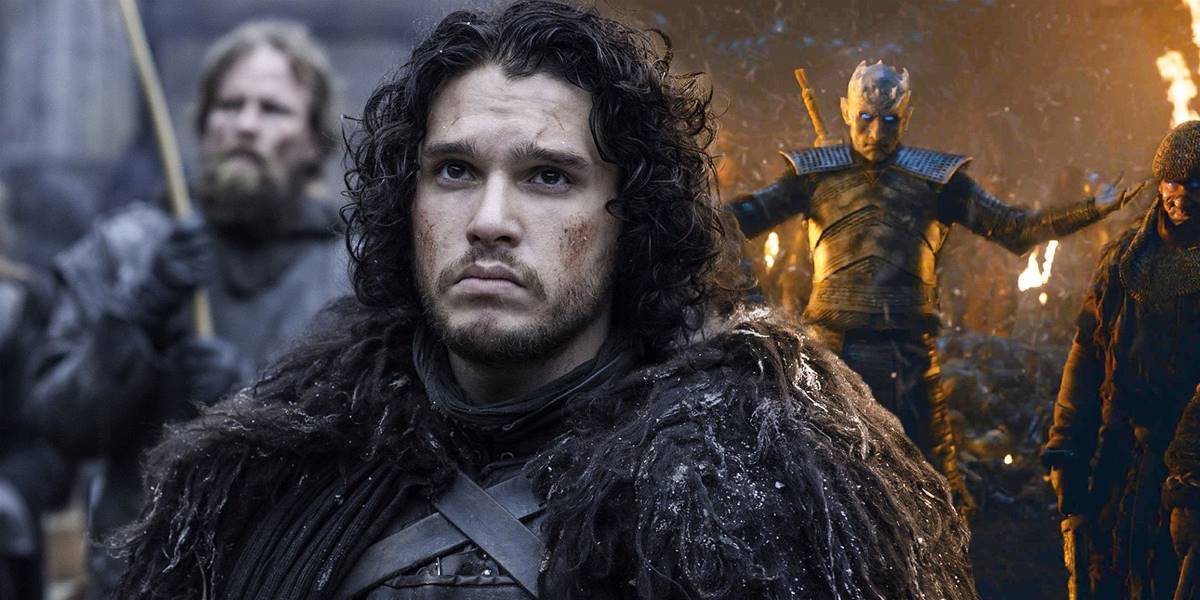
Even if the argument that Grey Worm shouldn’t have had a say in the matter is disparaged, the punishment itself was also a plot hole. The Night’s Watch didn’t need to exist anymore. In season 1, the Night’s Watch had two purposes: to protect the realms of men from Wildlings and to protect them from White Walkers. Ultimately, it failed at both. Wildlings were no longer seen as the enemy by the end of season 8. While they would not bow to a southern king, they also wouldn’t attack Bran’s kingdom (or Sansa’s for that matter). The White Walkers had also been vanquished once and for all.
Therefore, the Night’s Watch was made redundant by
’ conclusion, meaning Jon was sentenced to a life defending the Wall from figments of the past. A punishment for murdering the queen would have been tolerable. However, there were many punishments that would have made more sense than returning Jon to . Kings Landing had just been burned to the ground — helping to rebuild the city would have been a more logical choice. Additionally, it wasn’t even a punishment. Jon simply left the Night’s Watch and went beyond the Wall with his Wildling companions.
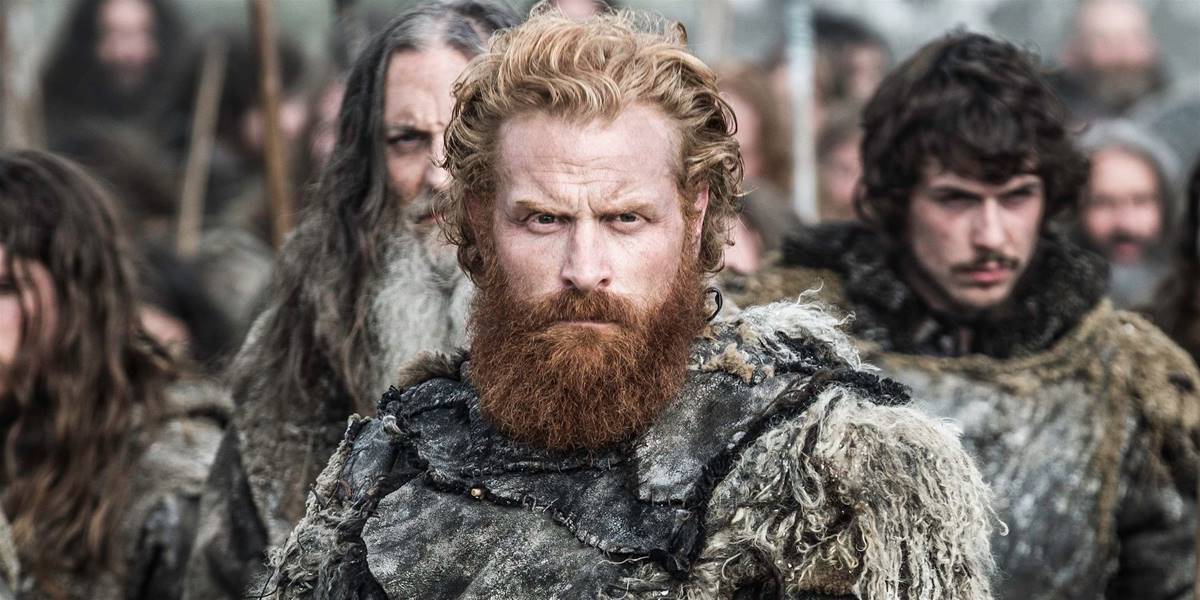
Despite no longer being an enemy of Westeros, the Wildlings returned to the lands beyond the Wall. It was an inhospitable environment, into which normal people had no desire to venture. To Tyrion, for example, it was a place where Wildlings had the misfortune of being born: “” With the White Walkers gone, the Wildlings were free to choose which side they wanted to dwell on. They chose their home.
Displacement and longing for home were recurring themes throughout the entirety of to its finale: Sansa dreamed of returning to Winterfell while she was trapped in Kings Landing, Daenerys was consumed by the abstract idea of home, and Jon found his home beyond the Wall.
As a bastard, he had no position in the Stark family. This drove him to join the Night’s Watch in the first place.
However, once there Jon found himself an outcast, first because he was a lord’s son and later because he formed an alliance with their sworn enemy. Only beyond the Wall did Jon find a place where he was accepted. In a finale that had plot holes bigger than the gap the Night King left in the Wall, it is some small consolation that season 8 did at least one thing emotionally right, even if logically, it made no sense.
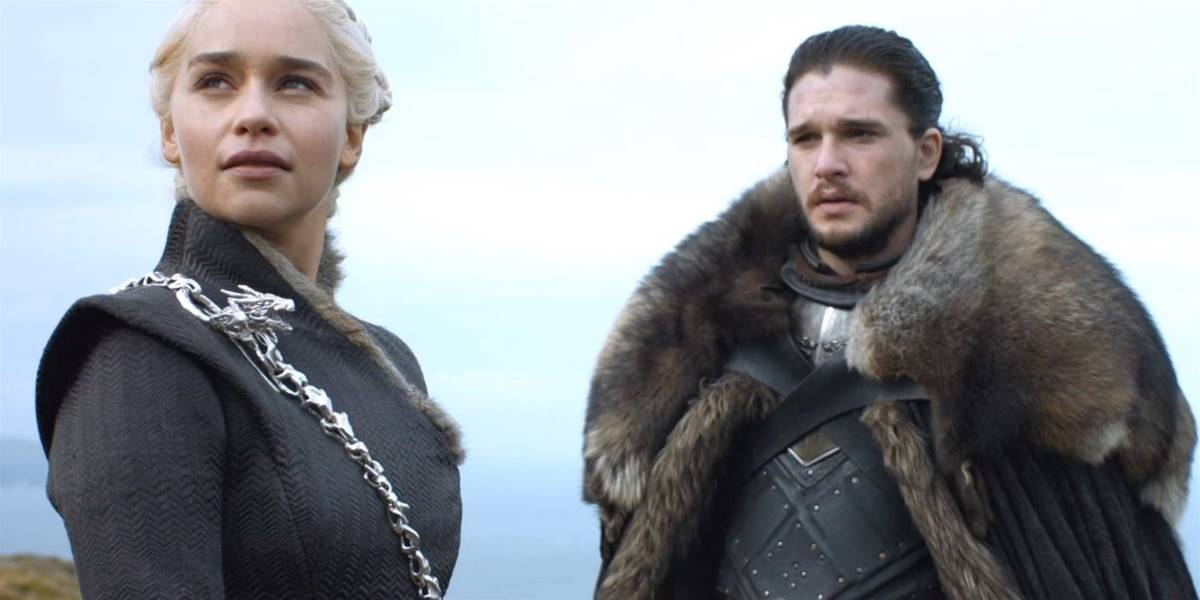
As it turns out, there is a in the works that will follow what happens to Jon Snow and his adventures beyond the wall. However, in order to be successful, the show will have to make Jon's punishment harsher. Life beyond the Wall after seems relatively unencumbered compared to how it was during the show, aside from the brutal climate. Now that the White Walkers are gone and the Wildlings are free to choose, there's no longer an existential threat to living in the far north other than the bitter cold, and he's free of the oppressive Westerosi politics he so loathed.
With the Wildlings free and the White Walkers gone, there's little reason to venture into inhospitable climates unless another threat looms – and little reason to make a sequel if there aren't plans to seriously disrupt Jon Snow's equilibrium. Jon Snow going back to the North would make more sense if the spinoff series would provide more context other than, "he seems happy up there." It's true that he found his real home with the Night's Watch, but he chose to forgo them and be with the Wildlings. It follows that there must be some purpose for Jon is up North other than Grey Worm's ruling.
The biggest challenge that the
sequel series will face with what happens to Jon Snow is steering clear of retconning the foundations of the finale, but adding texture so that Jon's ending makes more sense emotionally and politically. Though the series' ending is divisive, it's set in stone, and changing the trajectory or context of certain elements might actually improve the finale in hindsight. All in all, if the sequel series is to work, it will need to take away Jon's relatively happy ending and give him something to do beyond the Wall.
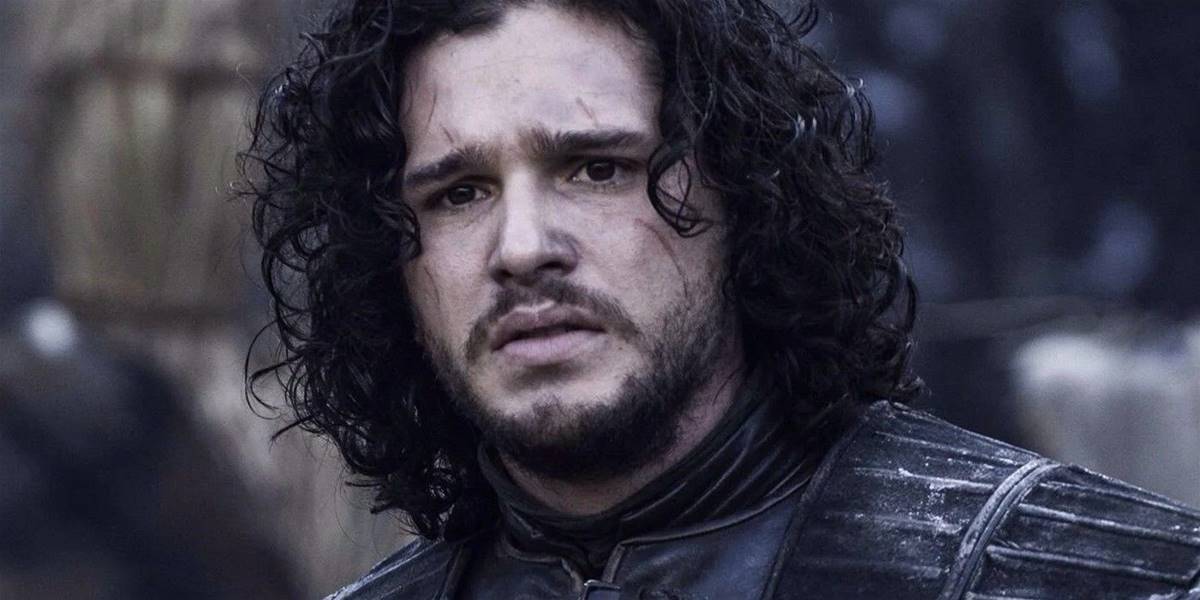
At the official 2022 convention, actor Kit Harington participated in a Q&A where he was asked numerous questions about his character. While he kept details surrounding his spinoff series close to the chest, Harington did reveal what happens to Jon Snow after — in his own mind, anyway. Harington mentions that Jon Snow probably believes he got off lightly with Grey Worm's sentence, though returning to the Wall can be seen as "the greatest gift and also the greatest curse," (via ).
Harington also suggests Jon is forced to return to a place that holds trauma for him and that he wouldn't be "okay.
"
Either way, Jon Snow's ending in only proved to highlight two major plot holes, something that his spinoff series can hopefully fix.
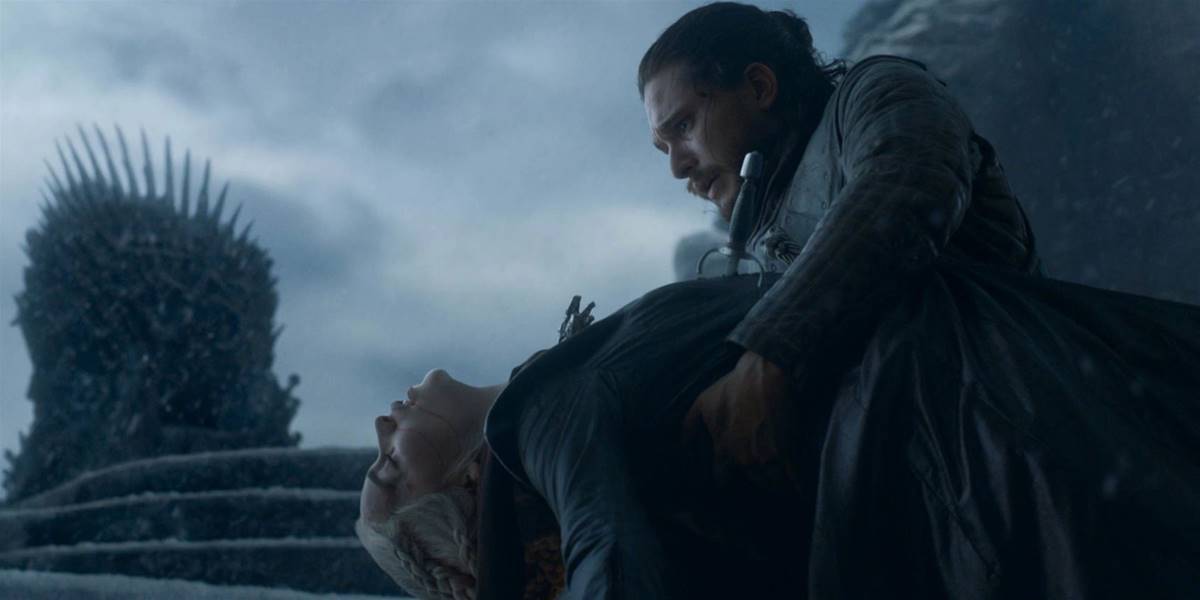
Jon Snow's ending may have been flawed in the show, but the character has another chance to end his story in a satisfying way in George R.R. Martin's books. As has been widely discussed, Martin's book series is unfinished with the show having surpassed the book material long before the end. In fact, the last thing Martin's books wrote about Jon was his assassination by his fellow Night's Watch brothers in the novel
. Therefore, Martin's books have a lot of material to cover in leading up to how Jon's story finally ends.
There will be certain similarities with how Jon's story plays out in the novels and how it did in the series as Martin provided the showrunners with key details of the entire ending. Fans can expect that Jon will be revealed to be the , he will kill Daenerys, and even that he will return to the North in the end. However, the difference will be in the context given his end which will likely clear up those frustrating plot holes left by the show.
The most likely change the books will make from
is that Jon returning to the Wall is his choice rather than a sentence. Regardless of his reasons, Jon sees his assassination of Daenerys as a dishonorable act that greatly shames him. However, the politics that Martin establishes in the books makes it likely he will not be punished for it once a new ruler is declared. That will only make the shame worse for Jon as it mirrors the way Ned Stark detested Jaime Lannister for killing his king. Therefore, Jon may decide regardless of his status as heir to the throne or part of House Stark, that he will go Beyond the Wall, not to protect it from non-existent threats, but rather as a form of exile.
